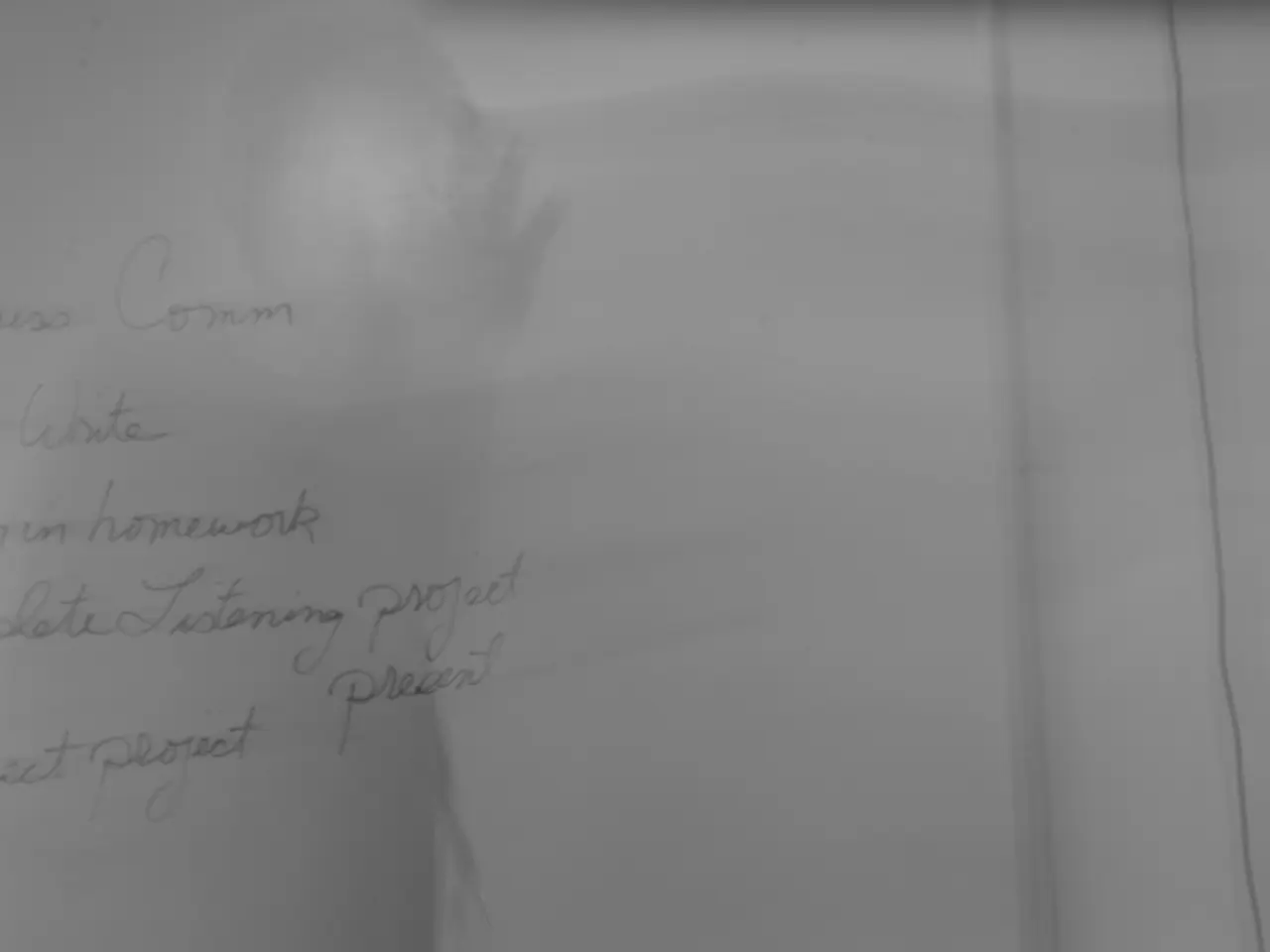Bayer intends to reduce its workforce further, following the dismissal of more than 11,000 employees.
Bayer, the German pharmaceutical and life sciences company, is currently in the midst of a multi-year restructuring program aimed at streamlining operations and reducing costs. The company has already made significant headway, having cut around 12,000 jobs since the beginning of last year, primarily targeting managerial and administrative roles [1][3][5].
The workforce reduction has resulted in a decline in total employees from over 96,500 in mid-2024 to about 89,500 by Q2 2025, a 7.3% reduction. Bayer expects further layoffs during the next 18 months [2].
Divisional Impact
The impact of the restructuring varies among divisions. The Crop Science division has benefited, with its EBITDA increasing by 32.3%, partly due to the cuts [1]. On the other hand, the Pharmaceuticals division experienced a 17.2% EBITDA decline despite growth in key drug sales like Nubeqa and Kerendia, influenced by portfolio adjustments and litigation costs [1][3].
Bayer's sales growth remains modest (+0.9% in Q2 2025), while net income is still negative (€-199 million), reflecting ongoing restructuring and litigation expenses [1].
Glyphosate Litigation
The company continues to manage heavy litigation liabilities, notably related to glyphosate. Bayer has set aside €6.3bn in provisions to cover these litigation costs [1][3][4]. Despite this, Bayer continues to reject the charge that glyphosate causes cancer, citing regulatory approvals in both the EU and US [1].
In addition to the existing litigation, Bayer's crop protection division incurred fresh litigation costs related to legacy Monsanto products [1]. The company added €1.2bn to cover additional legal risks related to glyphosate [1].
Outlook and Future Plans
Bayer's CEO, Bill Anderson, expects additional reductions in headcount over the coming 18 months. He also stated that the company is considering alternative outcomes, including a possible exit from glyphosate production [1].
Anderson indicated that a decision from the US Supreme Court regarding glyphosate is expected in 2026 [2]. He also reiterated that his contract has been extended to 2029.
Bayer benefited from strong transfer revenues at its wholly-owned football club, Bayer Leverkusen. One of the transactions that helped offset increased costs for staff incentive programmes and adverse currency effects was the sale of star midfielder Florian Wirtz to Liverpool FC [1].
In summary, Bayer is deep in its multi-year restructuring to streamline operations and reduce costs, with significant headcount cuts done and more expected, influencing divisional performance unevenly while aiming for revenue growth and improved profitability in the mid-term [1][2][3].
[1]: Bayer's Q2 2025 Results [2]: Bayer's CEO Bill Anderson Expects More Job Cuts [3]: Bayer's Restructuring Program [4]: Bayer's Glyphosate Litigation Provisions [5]: Bayer's Headcount Reduction
- The restructuring program at Bayer, a German pharmaceutical and life sciences company, has led to a decrease in employee numbers, with the expectations of further layoffs in the finance sector as part of the broader cost-cutting measures for the next 18 months.
- Despite the challenges posed by ongoing litigation liabilities, particularly those related to glyphosate, the business strategy of Bayer includes considering alternative outcomes, such as an exit from glyphosate production, as well as seeking revenue growth and improved profitability in the mid-term, partly through the sale of key assets in the industry, like star midfielder Florian Wirtz from its wholly-owned football club, Bayer Leverkusen.




